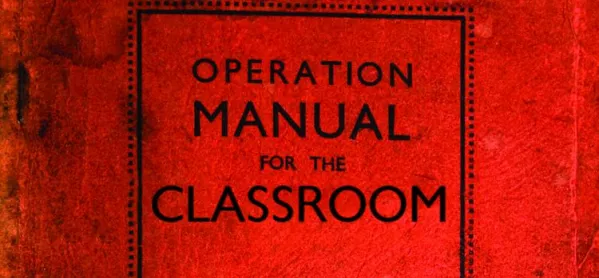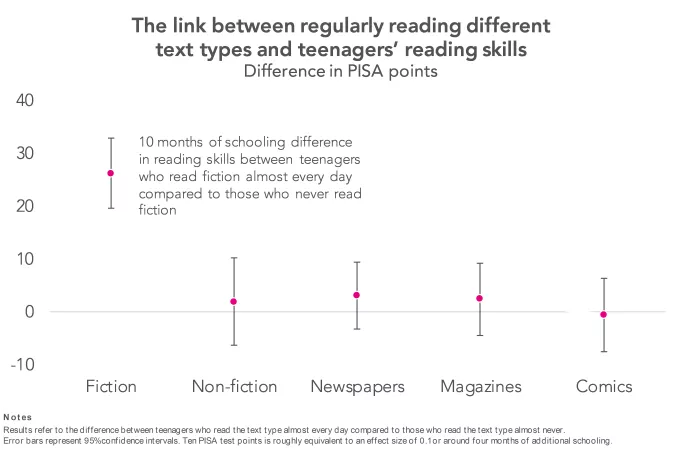The benefits of reading for pupils’ overall attainment are well known, but does it matter what children are reading?
According to an analysis published today, some books are more effective than others - and reading fiction yields far more benefits for pupils than other forms of reading material.
Research: London students do less well in Pisa rankings than GCSE
Opinion: Non-fiction boosts progress in reading… That’s a fact
Quick read: Literacy: the real story on non-fiction
Using data drawn from the Organisation for Economic Cooperation and Development’s Programme for International Student Assessment (Pisa) study, researchers have linked the frequency with which 15-year-olds read different types of reading material to their Pisa reading scores.
Candidates for the 2015 Pisa rankings were asked how often they read fiction books, non-fiction books, newspapers, magazines and comic books, in the research by John Jerrim, professor of education and social statistics at the UCL Institute of Education, and Gemma Moss, professor of literacy at UCL.
The benefits of reading fiction
The researchers found that pupils who frequently read newspapers, magazines, comics and non-fiction books did not achieve significantly higher Pisa scores in reading than those who did not.
However, pupils who read fiction almost every day scored approximately 26 points more in their reading tests than those who never read such books - the equivalent of around 10 months’ additional schooling, according to the OECD.
The researchers thought this might be attributed to readers of fiction books spending more of their time reading as a whole - a pupil making their way through a classic work of literature will read more than one of their peers who rifles through a magazine.
However, they found no evidence to suggest this was the case, and found that the “fiction effect” was just as strong after controlling for the amount of time pupils spent reading.
They also controlled for other variables such as gender, socioeconomic status or school type to rule out alternative explanations for the results.
Commenting on the finding in a blog post published today, Professor Jerrim said it had “important implications”.
“Parents and teachers should not encourage teenagers to “just read something”, no matter what this is”.
“Rather, they should focus their efforts on encouraging young people to engage more with novels and other lengthy fictional texts that encourage deep reading for sustained periods of time.”
“This is likely to be particularly important for boys from lower socioeconomic backgrounds - the group we find to be reading this type of text the least, and who also have comparatively poor reading skills.”





